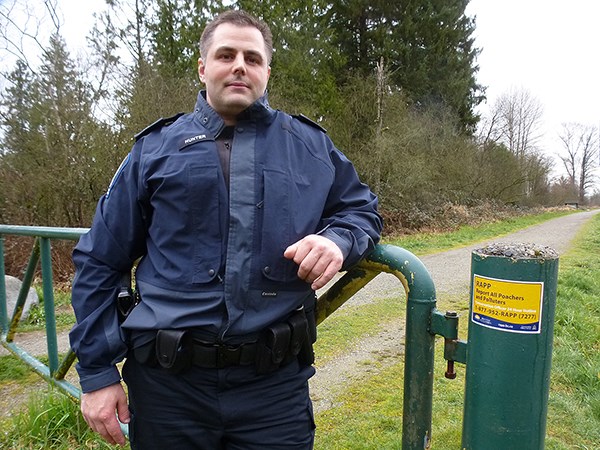Preventing bear cubs from being orphaned is as easy as locking up garbage, bird seed, pet food and other attractants and closing commercial waste bins, says Sgt. Todd Hunter of B.C.'s Conservation Officer Service.
Conservation officers responsible for wildlife protection from the North Shore to Mission, including the Tri-Cities, Richmond and Delta, have picked up seven bears and brought them to Critter Care in Langley.
Some of these young bears may have lost their moms through car accidents, but others have been separated through attempts to deal with sows habituated to human trash.
In Coquitlam, for example, a cub was separated from its mom while COs were trying to chase the bear family out of a neighborhood.
"We had to intervene to look after that cub, it was impossible to link them back up," Todd said, although efforts were made to capture the sow and relocate the family.
Now, with cold weather bears are supposed to hibernate, but with human food available, and warmer than usual temperatures, they don't always sleep soundly. Young bears in particular might wake up disoriented and could get separated from the sow.
That's why it's important to secure attractants so bears, with their acute sense of smell, don't seek it out, Hunter says.
"There's so many attractants, they might not even go into long cycles of torpor, if the food is still there, why go to bed?"
Critter Care has been swamped with bear cubs this fall, many of them underweight. In Powell River, for example, just under 10 orphaned cubs have been reported because a lot more bears have been showing up in town looking for food.
Todd worries that come next spring COs will have a hard time finding places to release the 33 cubs now at Critter Care.
"Were going to have difficulty in determine spots. (But) at least, because of the circumstances, we got them looked after and we got them out of harm's way and out of people's way."
He's working with Coquitlam, Port Coquitlam and Port Moody to reduce attractants so there are fewer bear conflict complaints. The Tri-Cities is responsible for about half of the 4,500 calls the service has received so far this fiscal year, and with four months left to go, will be a record year for bear complaints.



